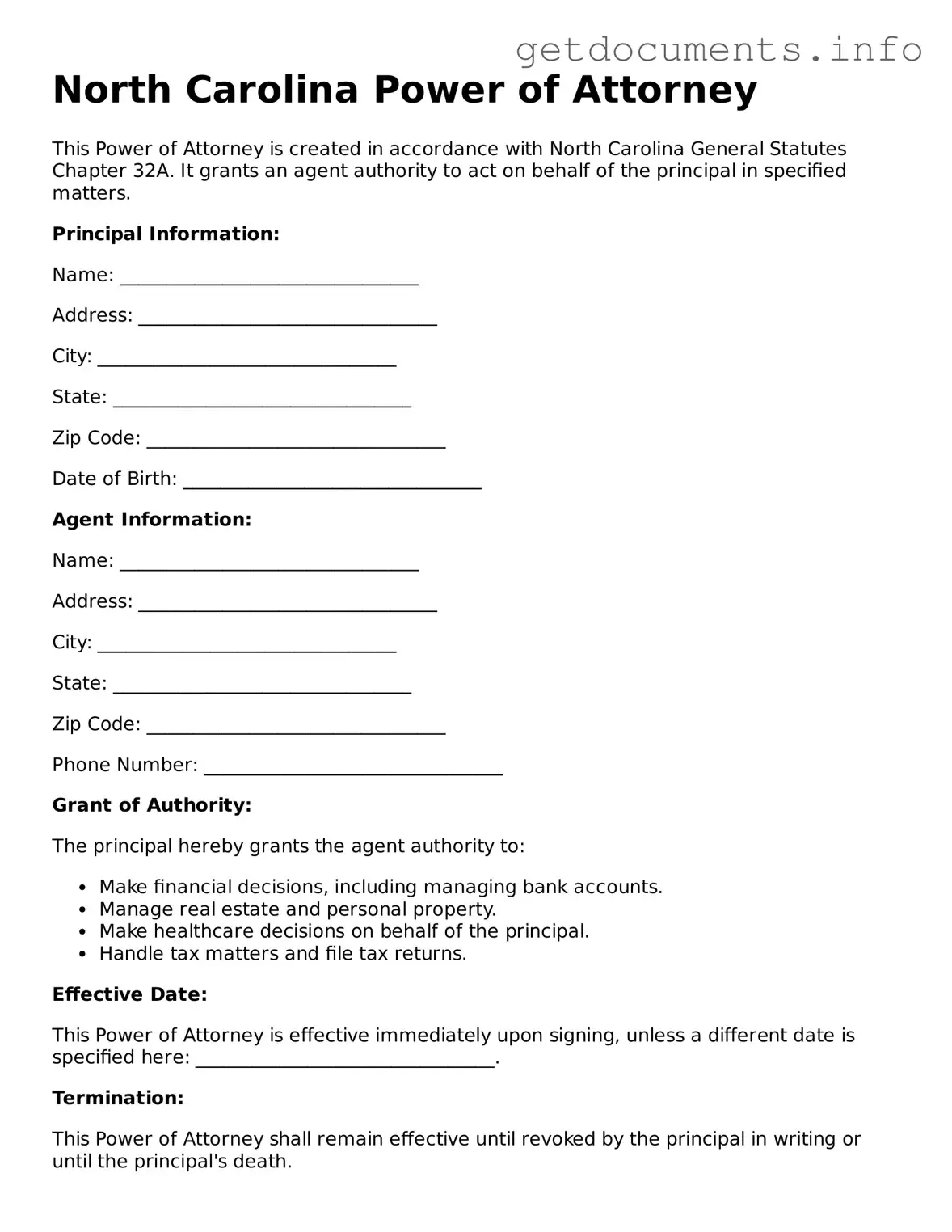Free Power of Attorney Template for North Carolina
A North Carolina Power of Attorney form is a legal document that allows an individual, known as the principal, to designate another person, called the agent, to make decisions on their behalf. This form can cover a range of decisions, from financial matters to healthcare choices, depending on how it is structured. Understanding the nuances of this document is crucial for ensuring that your wishes are honored when you are unable to communicate them yourself.
Ready to take control of your future? Fill out the Power of Attorney form by clicking the button below.
Access Power of Attorney Editor

Free Power of Attorney Template for North Carolina
Access Power of Attorney Editor
Got places to be? Complete the form fast
Fill out Power of Attorney online and avoid printing or scanning.
Access Power of Attorney Editor
or
⇩ PDF File
